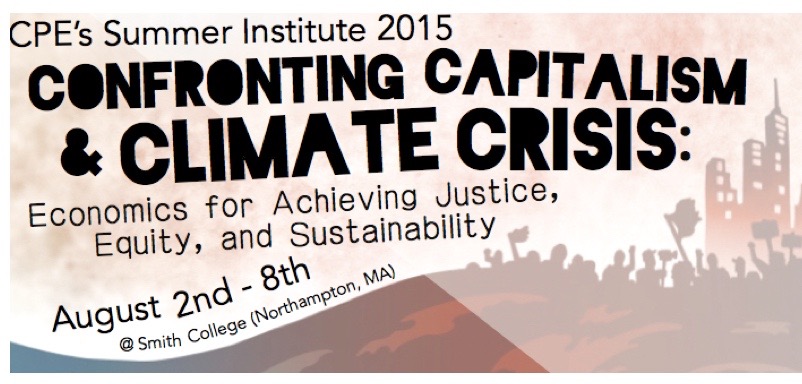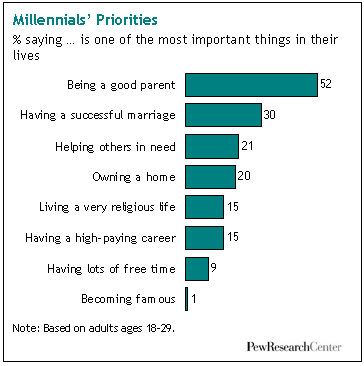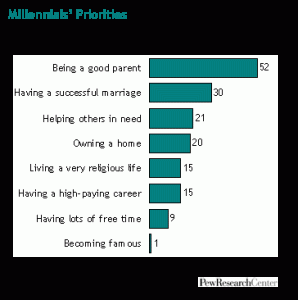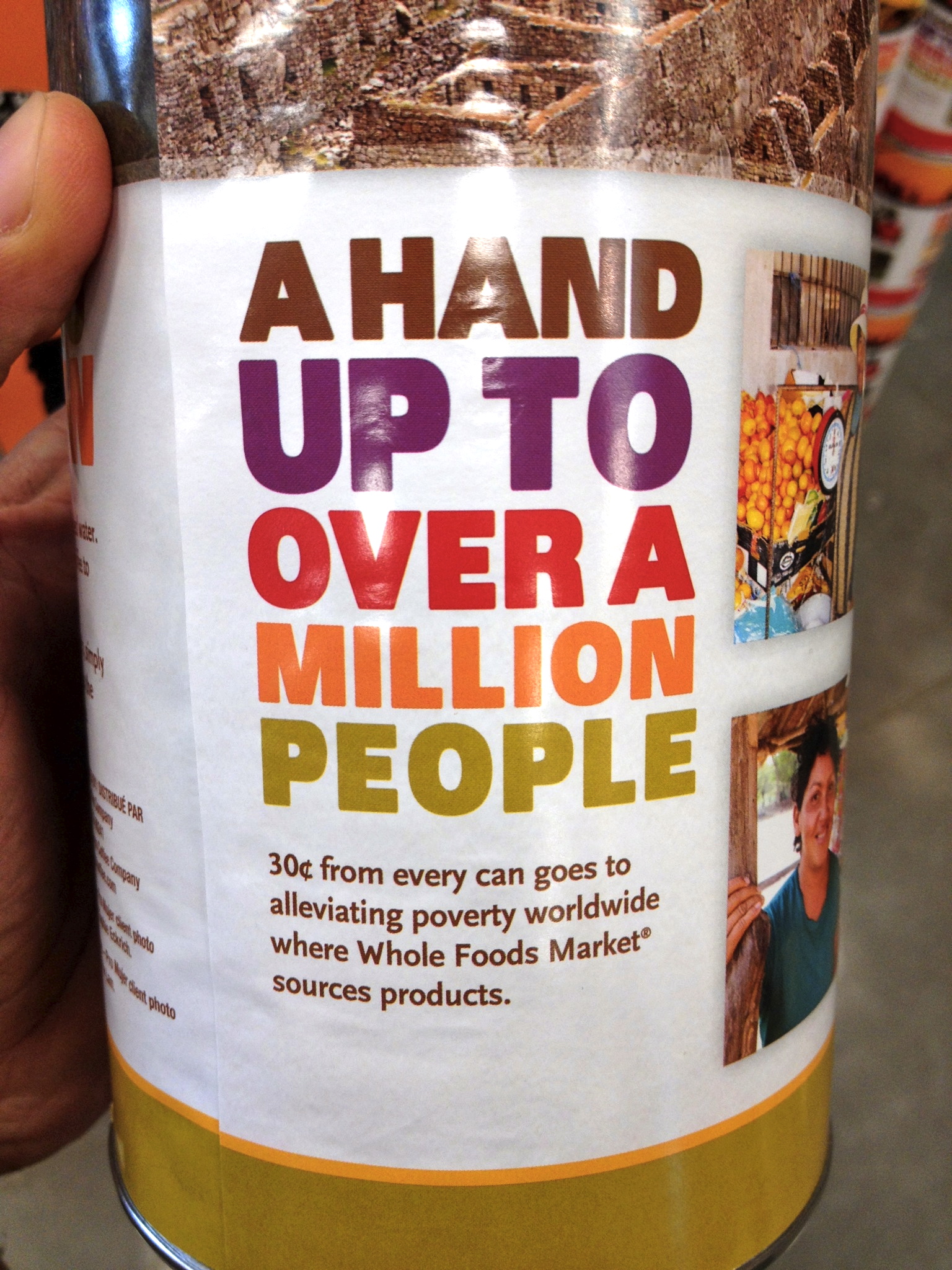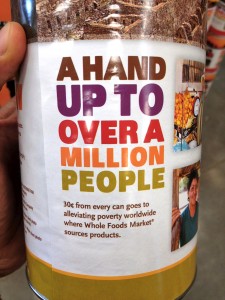One problem that we face here is that this is blog post; it’s not a history book. As such, a certain amount of compression is necessary, and whenever compression occurs, distortion creeps in. There is simply no way around that, save greater length. But greater length leaves more nits behind that can be picked.
Some of the points brought out in comments are more about compression than they are about substance. What I will try to do is address what appear to be the issues of substance, while allowing peripheral and/or compression-based quibbles to slide. I apologize for this, but there’s not much to be done about it.
However, there are two statements in my original post that I would like to take back.
The first:
In fact, conservative ideas–low taxes, no regulation, no government–have all been tried. In fact, these ideas describe how government operated throughout most of human history. And they certainly describe the government of the US for most of its history
No regulation and no government is an unfortunate bit of sloppy writing. I realize that no one is advocating for no government, so this is a classic straw man situation. This should read ‘minimal government.’ There has to be someone enforcing property rights, after all. And Adam Smith said that the primary purpose of government was to protect the few wealthy from the many non-wealthy.
The second:
Generally speaking, a free market is, more or less, unregulated. The idea is that all of the players–buyers and sellers–jockey back and forth in a rough-and-tumble so that prices come to reflect the best value as determined by the ‘market’, and resources are allocated efficiently and optimally
This pretty much falls into the realm of flat wrong. I suppose I could pick nits and debate the point, but I believe it’s better just to concede it as a mistake and move on with the real topic. Again, I’ll plead sloppiness, certainly of writing, possibly of thinking. It would probably have been best, again, to use the phrase ‘minimal’ regulation.
The rest of the original post, however, I stand behind, and believe that what I wrote reflects actual reality. Boiled down, this is my position:
In the late 1800s, there existed conditions of a largely an unregulated marketplace and a bare minimum of government. IOW, these are the conditions that conservatives are advocating that we implement in our current world.The result of this largely unregulated marketplace, with minimal government overseeing the situation, led to conditions in which many sectors of the economy were controlled by what can be, more or less, called monopolies. To prove this point, I cited a work that quoted a source contemporary with these circumstances, stating in no uncertain terms that many sectors of the economy were controlled by what we would, more or less, call monopolies.
These two paragraphs summarize my argument. To refute my argument, I would suggest that it’s probably be necessary to show that one or both of these points are wrong.
The work cited was given bibliographic reference, publishing date, and page numbers. I’m sorry if it’s not something that’s available on-line, but you can always order from Amazon. That’s what I did. I got a used copy for about $5 (plus S&H, of course!)
I believe this was a good work to cite for these reasons:
1. The first edition was published in 1973; the second in 1989. This is good, because it was prior to the time that the bitter partisan rancor had infected much of the writing of history. Writing history is a process; theories rise and fall, but what has happened lately is that the rancor that affects too much of our political dialogue has crept into the writing of history. As such, I don’t trust much that was written in the past decade.
2. This is a fairly short work. As such, it’s something of a summary of the consensus opinion. Almost nothing in there would have been considered controversial when it was written. This is important because it means that it wasn’t proposing arguments from the fringe. It represented what most historians at the time would have considered ‘safe’ positions, since these positions were held by the majority of historians. (Yes, that’s circular, but that’s rather the point.) There was nothing ground-breaking about the work, or the arguments.
Returning to the argument: to bolster my position, I cited the way banks and pharmacies in RI have become consolidated. The point is that unregulated markets will, eventually, end up in a monopoly. This certainly and irrefutably happened in the 1800s; that banks and pharmacies have consolidated to such a degree indicate, IMO, that the process of evolution towards monopoly will repeat itself if allowed to do so. As I keep saying: it happened once, there’s absolutely no reason to think it won’t happen again if we set up similar conditions.
However, I am not stating that the process has completed itself. Bank of America does not have a monopoly on banking services in RI. The point is simply that there are fewer choices now than there were before the deregulation craze of the past few decades. This craze particularly affected banking
One of the objections raised was that it’s not necessary for competition to actually exist in order to maintain free markets; all that is necessary is that the potential for competition to exist.
I agree. However, this in no way undermines my point that ‘robust competition’ must exist. What came to pass in the 1800s/early 1900s was a situation in which, in many sectors, it was not possible for competition to exist, or to arise. That is the extreme case for monopolistic conditions, but this is exactly what happened. Not only did Rockefeller control refined petroleum products, he controlled the entire vertical organization of the subsidiary industries necessary to produce refined petroleum products. Carnegie controlled not only steel production, but iron mining, coke production, and all of the necessary feeder industries. In such conditions, competition cannot come into being, because the monopoly is the only purchaser and supplier of the necessary products.
Read the quotation in the original post to see the number of commodities/sectors that had fallen under the control of monopolies.
So to say that only the possibility of competition need exist rather misses the point. In a true monopoly, competition not only does not exist, it cannot come into being And these are pretty much the conditions that actually existed for several decades. If you disagree with these statements, I cannot help you. All I can do is suggest that you go back and read more history. What I am talking about is not economic theory; it’s a ‘natural experiment’ in which certain conditions existed and these conditions led to a result that undermined the free market much more than any government intervention could.
BTW: Only the hard sciences can run real experiments, in which all variables are controlled properly. Social science must rely on statistics. Economics must rely on observing what has happened when certain circumstances prevailed. That is why it’s called a ‘natural’ experiment. A real experiment in Economics is simply not possible to construct. This is the reason so many of the freshwater economists have been seduced by their math. It seems to provide ‘hard’ data for their suppositions. It really does no such thing. It provides solutions to equations which may–or may not–have any resemblance to the real world. The real world is simply too complex to capture in an equation w/o first making numerous assumptions that drastically distort the ‘answer’. However: please do not make this contention the focal point of any rebuttal. This is peripheral to my main point.
Given that this happened once, there is no reason to believe that, given a hands-off approach to regulation of commerce, the same conditions would not develop again. Given the level of deregulation that has occurred over the past few decades, we have begun the process. Further deregulation is likely to accelerate the process. BTW: the BLS has plenty of numbers showing that the number of Americans working for large companies is increasing. (“Large” is defined as 500+ employees. Don’t like that definition, take it up with the BLS.)
I am not saying that anything like monopolies exist at the current moment. What I am saying is that, given further deregulation, this is where we are heading. Absent effective regulation, including effective—and effectively enforced—anti-trust regulations, we will continue down this path. Any business that comes upon a competitive advantage will, later if not sooner, use that advantage. And size can be, and is, a huge advantage. Eventually, companies get large enough to squash even potential competition. I can anticipate howls of protest about this statement. However, remember, it did happen. This is not a discussion so much about now; it’s a discussion about the actual past and so quite possibly about the future.
Standard Oil was the most egregious example of the trusts of the early part of the last century, but it was far from the only example. To say things like, ‘oh, this only happens occasionally’, or, ‘this is virtually never the case’ is to miss the point of what actual history is telling us. Monopolization occurred on a large scale, and affected a large chunk of the economy.
I cannot stress enough that this is not theory. This is what happened. What did Adam Smith detest more than anything in “Wealth of Nations”? Monopolies. (Hint: this is, to a limited extent, hyperbole. But only to a very limited extent. Also, for full disclosure: monopolies, in his day, were the result of government action—interference—in the market.)
To this point:
Political influence is a crucial element in creating monopoly conditions. After a company grows to a certain size, the only effective check on its continued growth is a strong federal government. Insurance is regulated at the state level. On the one hand, insurance companies complain about having to operate under fifty different sets of regulation; OTOH, the truth is that last thing they want is the federal regulation of insurance. States can be manipulated, or bullied, or played against each other. In the early 20th century, the federal government had to intervene to bust the trusts; it was the only agent capable of doing this, and it only happened after the abuses of the system became so gross that the public outcry became too loud to ignore. Absent government interference, there is no reason to believe that anything would have changed. The fact that enforcement of Sherman Antitrust grew more rigorous after the 17th Amendment–direct election of senators–was passed in 1912 is not an accident. But, again, this last statement is not central to my argument. Debating it will neither lessen nor strengthen my case.
Government is bought by people who have the money to buy it. And the people who buy it, do so for their own benefit. Thus, to say that ‘the government’ distorts the market is not entirely true. The people who can afford to buy the government are the ones causing the distortion. This is why allowing too much money to amass in a few hands is a bad thing, for free markets and for democracy. Again, we have the example of most of human history, in which government was controlled by a few people, who arranged things for their benefit. The idea of a democracy is to make sure that the government is operating for the good of most people, not for the benefit of just a few. Again, “Wealth of Nations” has a lot to say about this.
[ Note: Some of this anti-government sentiment that exists today grew out of a period in which many people, and political parties, advocated and effected the actual government control of industry. This is known as Communism, or Socialism, depending on the degree of control, style of government, etc. However, no sane person, who has any influence in any major US political party, is advocating for state control of industry. There are no Socialists, let alone Communists, operating at any serious level in the country today. They exist, but they are the lunatic fringe, with no influence over the Democratic Party in particular, nor in liberal thought in general. So calling me a Socialist is just plain wrong, completely beside the point, and possibly stupid. ]
Finally, conditions favorable to the monopolies continued to exist as long as they did because the captains of industry were able to purchase the support of enough politicians who refused to pass laws to correct those conditions. They were able to do this because they had amassed vast fortunes, so large that they could consume on a scale that would have made Louis XIV envious. Remember–those ‘mansions’ in Newport are not ‘mansions’. They are summer cottages.
One commentor said.
“…The second area in which progressives err is their assumption that government is the solution to market failure, while ignoring the very real issue of government failure, the costs of which I would argue outweighs the benefits a large portion of the time. Just because a market isn’t working well doesn’t mean that government can make it run better without doing more harm than good. There is a high burden of proof in making such a claim and arguing for government intervention. ….[ italics mine–O Krell ]
I agree. As proof, I offer what happened the last time that we lived under conditions in which the government stayed out of the marketplace. A few people benefitted enormously. Most people suffered, barely able to eke out a living. History supports my case. If you disagree with that, then my only suggestion is that you read a bit more history. Otherwise, we have no basis for discussion.
Another comment:
This is all really just an exercise in storytelling dressed up as economic and historical analysis. You start with a theory – free markets leads to monopolization and inefficiency – then you cherry pick only the time periods and individual examples that seem to immediately support the point, throw out all the counterexamples and time periods that don’t immediately support the point, and use the resulting scientifically worthless data set to conclude the original hypothesis. [ Note: ‘capitalism’ as an economic system arguably did not exist before, say, 1750. Adam Smith, nor Karl Marx ever used the term. The US and Great Britain are the only two countries that practiced capitalism on any kind of scale. There aren’t a whole lot of time periods or places available. O. Krell.] It’s not a natural experiment at all because it doesn’t have any of the controls that a proper scientific experiment would have. [Note: as stated above the lack of controls is what makes it a ‘natural’ experiment. The point is, in economics, it’s generally impossible to run experiments like one can do in physics, in which circumstances are artificially controlled. So you have to look for times and places when the conditions existed, and see what happened. O. Krell… ]I could just as easily come up with a counter narrative: throughout most of human history, technology and markets stagnated during periods of intense top-down government control and geographical limitations. As countries liberalized and embraced free trade, inventors were allowed to enjoy the fruits of their labor, and societies became more laissez faire with respect to their market economies, these societies began to prosper. The United States, as the most free market country to exist in its time, enjoyed the most rapid and consistent economic growth, outpacing its European, Asian, South American, and African rivals, [ Largely because the Captains of Industry maintained high and restrictive tariffs on any and all goods manufactured elsewhere, which ensured that they were protected from any nasty competition from abroad. O Krell ]which still experimented in failed forms of central economic planning and outmoded, top-down political systems. Between 1948-1973, the United States ended its crowding out Keynesian-wartime public spending and maintained a largely hands-off approach to its market economy. As a result, productivity grew at a quick and steady pace, standards of living greatly increased, and unemployment remained low. In the early 1970?s, the size and regulatory activity of the Federal Government entered a rapid expansionary period, triggering a sharp slope change in productivity gains as the private sector was burdened through newly enacted environmental restrictions, labor restrictions, intellectual property restrictions, antitrust restrictions, and other interventionist policies resulting in extreme deadweight loss
The part bolded is simply wrong. In the period 1948-1973, the markets were heavily regulated. Banking, in particular, was heavily regulated. There was a 91% top marginal tax rate. Unions were given the full support of federal regulations, and workers were able to claim their share of the productivity gains because they had clout of the unions behind them. Union wages forced other businesses to compete with union wage scales. Workers benefitted, but so did the economy. They spent their money. Then, when the war ended, the government passed the GI Bill, so that thousands of returning soldiers could buy houses and go to college, which created the demand for houses—then cars and tires and appliances—and let the sons of farmers and factory workers become educated consumers who could design more products. We went on a binge of roadway construction; this is when the backbone of the US Interstate highway system was created. The government subsidized oil and gas exploration and production. The US military assured the safety of the seas so that we could export our manufactured products…..I could go on.
How is this ‘hands-off’? It’s not. The period 1948-1973 was one of heavy regulation and high taxes, but the commentor notes how much standards of living increased. Funny, that.
The regulations mentioned were, largely, the creation of earlier periods. Antitrust restrictions came into being under Teddy Roosevelt, not Jimmy Carter. Labor laws were put in place in the 1930s, after several decades of labor unrest due to horrible working conditions. People literally died to bring us the forty-hour week.
The predecessor of the FDA was created in 1906, because ‘medicine’ sometimes contained ingredients that were harmful; in at least one case, the ingredients were downright poisonous. 146 workers died in the Triangle Shirtwaist fire because management had locked all the exits to prevent the workers from sneaking out. This was the largest loss of life in NYC until 9/11.
Government regulations were supposed to end this practice, but a similar situation happened in Hamlet, NC in 1991. 54 workers died in a fire at a chicken processing plant because the fire exits were locked–to prevent workers from taking unauthorized breaks. At least, this time, people went to jail. Yes, these burdensome regulations are killing American business. Remove–or don’t enforce them, which comes to the same thing–and then you have businesses killing American workers. Look at the spate of mining disasters that occurred towards the end of the Bush administration, which occurred because of lax enforcement of existing laws. Seems Bush’s people couldn’t get around to actually enforcing the laws they had sworn to uphold. Worklplace safety laws were enacted because workplaces were unsafe. They often still are, and fact that companies still do not ensure that their workplaces are safe seems to me to be a good indication that regulations are needed. Otherwise, the question becomes: How many deaths in the workplace, as the result of unsafe conditions, are acceptable? 10? 20? What is acceptable collateral damage?
Environmental regulations, admittedly, were put in place in the 1970s. But this was done out of necessity, because our air was becoming unbreathable, and our water undrinkable. Recall that the Cuyahoga River in Cleveland actually caught fire in 1969 due to the large amounts of oil and debris dumped into the river. I have to pay to have my trash removed; industry does not have the right to dump their trash wherever it pleases, which was standard practice until the coming of environmental laws. Why can’t you eat shellfish from the upper Narragansett Bay? Because generations of jewelry manufacturers simply dumped lead and mercury down the drain. It lodged in the bottom of the bay, and it’s still there. Shall we allow this to happen again? If you want an example of a lack of environmental regulation, check out Beijing. Recall how a number of athletes wouldn’t–or couldn’t–participate in the 2008 games because the air quality is so poor (because of a lack of ‘burdensome’ environmental laws.) Don’t know about you, but I’m kind of fond of breathing. Shall we become like Beijing with its horrific air pollution? There’s a step forward.
It wasn’t ‘restrictive regulations’ that caused the recession of the 1970s. Rather it was largely due to a massive price oil shock in 1973, which caused oil prices to increase by several hundred percent, which led to a nasty recession; however, the recession of the 1970s was mild in comparison to what happened when largely unregulated ‘shadow banking’ institutions played fast and loose, like they did in the 1920s. The companies that engaged in the most reckless behavior were the mortgage originators, like Countrywide finance, that were not covered by most of the laws that regulated banks. They were not subject to CRA regulations. BTW–CRA was passed in the 1970s; if it had such pernicious effects, why did it take 30 years for them to cause such problems? Answer, because it didn’t cause the problems. The deregulation of the financial industry, which started under Reagan, continued under Clinton, and hit warp speed under Bush is what caused the recent financial meltdown.
It’s not an accident or a coincidence that the largest financial crisis since the 1920s/1930s occurred after thirty years of deregulating, so that the regulatory environment came to resemble that of, well, the 1920s. In 2004, the CEOs of Lehman, Goldman-Sachs, and a few others met with GW Bush’s Secretary of the Treasury. After the meeting, the amount of capital reserves these banks had to maintain was lowered significantly. As a result, these banks were able to leverage up to something like a 30:1 ratio. That means, for every dollar of actual cash reserves held, they could borrow $30. This is great when the market goes up, but when it starts to go down, as markets always do, it’s disastrous. It was a disaster in 1929 when margin calls wiped out huge chunks of wealth; it was a disaster in 2007-08 (while Bush was still in office) when margin calls wiped out trillions of dollars of wealth.
The stock market crash of 1929 was caused by lack of government regulation, which allowed brokers, businesses, banks, and persons to overleverage. The Depression was caused by the refusal of the government to step in. This is what Uncle Milty Friedman meant when he said that the money supply should have been increased. But, at the time, theory was against intervention, as is summarized by Andrew Mellon’s famous quote: “Liquidate labor, liquidate stocks, liquidate the farmers, liquidate real estate.” By this he meant that the government should do nothing, to allow the down cycle to run its course,which was economic orthodoxy at the time. Never mind that unemployment was running at 15-20% by then, that credit markets were frozen, factories shut down, and that people were starving. Literally starving. Oh, and in 1931 there was a thing called the Dust Bowl going on in most of the heartland of the country.
It was more important that we follow the advice of that the Austrian School of economic thought still recommends and do absolutely nothing. That’s pretty much what Hoover did, for his entire term. He didn’t intervene in the economy in any meaningful way. He simple let people starve. He didn’t do anything about victims of the Dust Bowl, either.
“Do Nothing” has become voguish again. Unregulated markets per se did not give us the stock market crash. Reckless behavior fueled by greed caused the bubble, which, when it burst, caused the stock market crash. However, the thinking that markets should be unregulated is what prolonged, if it did not cause, the Depression. Then in the current century, deregulated markets allowed the shadow banks, once again, to engage in reckless behavior, just as happened in the financial markets of the 1920s. The result was the same in both cases.
Fortunately, we do have a minimal safety net this time. People aren’t starving, but “Do Nothing” would suggest that this is what we should do. The GOP candidates are fighting to see who can cut the safety net the most. Back in the 1930s, though, folks weren’t so fortunate.
Here’s what things were like: http://old-photos.blogspot.com/2008/12/christmas-dinner-1936.html
Yes, this is 1936, when FDR was in office, and after things had improved. Imagine what things were like in 1931, in the midst of the Dust Bowl.
The Depression ended with the coming of WWII, which was nothing if not government intervention into the marketplace on an unimaginable scale. Excess workers were siphoned off for the military; the government bought planes and tanks and guns. It was Keynesian intervention done very, very large. In short, it was another ‘natural’ experiment. Then, as mentioned, the government intervened again when the war ended, with the GI Bill, etc, and thus avoided the standard post-war recession, such as occurred after the Civil War, and again after WWI.
My point is simple: turn off the TV and go read some history. Until then, there’s not much to discuss. We’ve tried it all already. It didn’t work.
[ Note: this showed up in Mark Thoma’s Economist’s View blog the other day:
| Why can’t economists tell us what happens when government spending goes up or down, taxes change, or the Fed changes monetary policy? The stumbling block is that economics is fundamentally a non-experimental science, particularly in the realm of macroeconomics. Unlike disciplines such as physics, we can’t go into the laboratory and rerun the economy again and again under different conditions to measure, say, the average effect of monetary and fiscal policy. We only have one realization of the macroeconomy to use to answer important policy questions, and that limits the precision of the answers we can give. In addition, because the data are historical rather than experimental, we cannot look at the relationships among a set of variables in isolation while holding all the other variables constant as you might do in a lab and this also reduces the precision of our estimates. |
Essentially what this means is that we can’t rewind the clock back to 2009, try additional stimulus–or no stimulus–and see what happens the way one can in a physics experiment. This is why I believe that historical evidence is superior to economic theory. And, if you’re not reading Economist’s View, you should be.
http://economistsview.typepad.com/economistsview/2012/02/should-researchers-hide-results-from-the-public.html
 “The worker deserves his [or her] wages.”
“The worker deserves his [or her] wages.”
